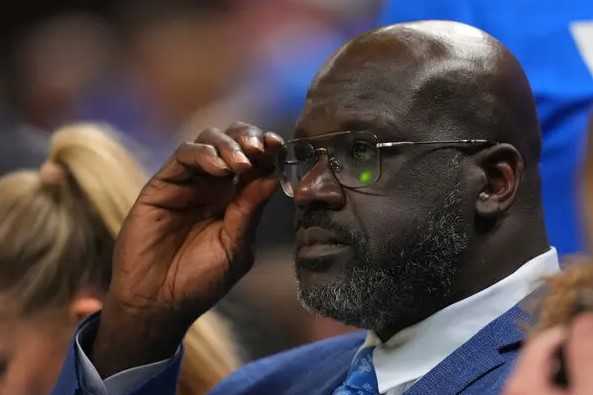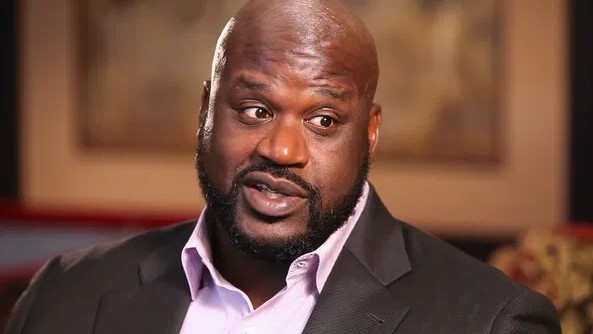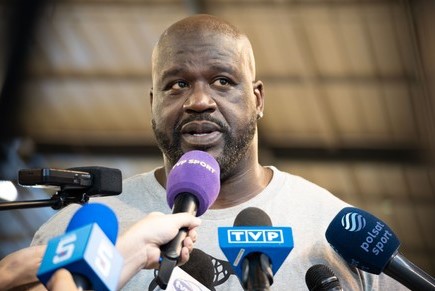Shaquille O’Neal’s Scathing Criticism of Sophie Cunningham and Jacy Sheldon’s WNBA Brawl and the Aftermath
In a dramatic turn of events that has sent shockwaves through the WNBA community, NBA legend Shaquille O’Neal has publicly condemned a recent on-court altercation involving Indiana Fever guard Sophie Cunningham and Connecticut Sun guard Jacy Sheldon, labeling their actions as a disgrace to the sport of basketball. The incident, which occurred during a heated game on June 17, 2025, at Gainbridge Fieldhouse in Indianapolis, saw Cunningham pull Sheldon to the ground in a flagrant foul, sparking a brawl that resulted in multiple ejections and widespread controversy. O’Neal, known for his outspoken nature, did not mince words, delivering a five-word rebuke: “Shameful conduct tarnishes our game,” highlighting his belief that such behavior undermines the integrity of professional basketball and sets a poor example for fans and aspiring athletes. His comments, made during a recent TNT broadcast, have ignited a firestorm of debate, with fans, analysts, and players weighing in on the implications of the incident.

Beyond his verbal critique, Shaquille O’Neal escalated his response by penning an open letter to the WNBA, urging league officials to impose strict and severe punishments on both Cunningham and Sheldon to deter future incidents and uphold the league’s reputation for sportsmanship and professionalism. In the letter, O’Neal argued that the physicality displayed in the brawl, particularly Cunningham’s aggressive foul and Sheldon’s retaliatory actions, crossed a line that cannot be tolerated in a league striving to maintain its status as a beacon of empowerment and competitive integrity. He emphasized that the WNBA, which has seen a surge in popularity thanks to stars like Caitlin Clark, must protect its image by enforcing a zero-tolerance policy for actions that lead to violence or disrupt the spirit of fair play, especially in high-profile games that draw significant media attention. O’Neal’s call for disciplinary action has sparked discussions about the balance between competitive passion and maintaining decorum on the court.
The incident itself stemmed from a series of events during the Indiana Fever’s 88-71 victory over the Connecticut Sun, where tensions had been simmering throughout the game due to physical play involving Fever star Caitlin Clark, who was poked in the eye by Sheldon and later shoved to the ground by Sun guard Marina Mabrey. Cunningham, acting as Clark’s self-appointed protector, retaliated in the final minute by committing a flagrant 2 foul on Sheldon, pulling her down by the neck during a fast break, which led to a melee involving players from both teams, including Sun guard Lindsay Allen, who was also ejected. The WNBA responded by issuing fines to Cunningham and Mabrey for their flagrant fouls, but notably, no suspensions were imposed, a decision that has drawn criticism from fans and commentators who believe stronger measures are needed to address such incidents.
Sophie Cunningham, far from backing down, responded to Shaquille O’Neal’s criticism with a fiery and unapologetic statement, defending her actions as a necessary stand to protect her teammate Caitlin Clark, whom she believes is inadequately protected by WNBA referees. In a press conference following the incident, Cunningham declared that her foul on Sheldon was a reaction to years of poor officiating that has failed to shield Clark, the league’s rising star, from excessive physicality, asserting that she will always prioritize her teammates’ safety over public perception or league penalties. Her comments, coupled with a viral TikTok video where she lip-synced to Selena Gomez’s “Hands to Myself” in a tongue-in-cheek jab at Sheldon, have only fueled the controversy, earning her both praise from Fever fans and condemnation from those who view her actions as unsportsmanlike and dangerous.

The fallout from the brawl and O’Neal’s response has highlighted deeper issues within the WNBA, particularly regarding player safety, officiating standards, and the role of physicality in a league increasingly under the spotlight. Cunningham’s actions have been polarizing, with some fans hailing her as a loyal teammate willing to stand up for Clark, while others, including a petition with hundreds of signatures, call for her removal from the league for repeated unsportsmanlike conduct that they argue compromises player safety and tarnishes the WNBA’s reputation. The petition, titled “Remove Sophie Cunningham from WNBA for misconduct,” cites her aggressive foul as part of a pattern that undermines the league’s values, yet Cunningham’s social media following has surged, with nearly a million new followers on TikTok and Instagram, suggesting her defiance resonates with a significant portion of the fanbase.
Shaquille O’Neal’s intervention has added a new layer to the debate, as his status as a basketball icon lends weight to his call for stricter discipline, but it also raises questions about whether his expectations align with the realities of competitive sports, where emotions and rivalries often boil over. His letter to the WNBA has prompted discussions about whether the league should revisit its policies on player conduct, especially in light of the increased physicality seen in games involving high-profile players like Clark, who has faced repeated hard fouls throughout the season. Critics of O’Neal argue that his focus on punishment overlooks the context of Cunningham’s actions, which were rooted in a desire to protect a teammate, while supporters believe his stance is necessary to maintain the integrity of the game.

Sophie Cunningham’s response to O’Neal has only intensified the narrative, as she has embraced her role as the Fever’s enforcer, unapologetically standing by her actions and using social media to amplify her defiance, further endearing her to fans who see her as a fierce competitor. Her Instagram post, featuring an image of her with arms outstretched in a defiant gesture, was interpreted by many as a direct rebuttal to O’Neal’s criticism, signaling that she will not be silenced or deterred by external pressure, even from a figure as influential as Shaquille O’Neal. This clash of perspectives—O’Neal’s call for decorum versus Cunningham’s unyielding loyalty—has turned the incident into a broader conversation about the culture of the WNBA and the expectations placed on its players.
As the WNBA navigates this controversy, the league faces a critical moment in defining its approach to player conduct and the balance between competitive intensity and sportsmanship, with Shaquille O’Neal’s outspoken critique and Sophie Cunningham’s bold response serving as catalysts for change. The incident has also underscored the growing pains of a league experiencing unprecedented attention, where every action on the court is scrutinized, and players like Cunningham and Sheldon become lightning rods for broader debates about the future of women’s basketball. Whether the WNBA will heed O’Neal’s call for stricter punishments or continue to allow players like Cunningham to push the boundaries of physical play remains to be seen, but the saga has undeniably left an indelible mark on the 2025 season.
